Every spring since 1991, the University of Missouri has honored outstanding faculty with William T. Kemper Fellowships for Teaching Excellence. In a quarter of a century, Mizzou's Kemper-winning faculty have amassed considerable collective wisdom about education. We asked Kemper Fellows, early and recent, to tell us what they know.
Advice for Educators
"Never fall in love with your syllabus! Adaptability and willingness to make changes as you go demonstrate that your course content is dynamic. I believe that this dynamic enhances student buy-in."
- Leigh Neier, College of Education, 2014
"Students won’t care what you know unless they are convinced that you care about them."
- John F. Bennett, Trulaske College of Business, 2014
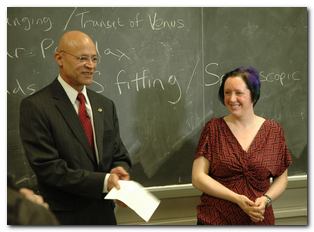
"Don't be afraid to give up some control. If you let the students have more power/control, they will learn more effectively."
- Angela Speck, Department of Physics & Astronomy, 2013
"Never pander to the students. Don't worry about what they will fill out in course evaluations at the end of the semester. You spent a long time getting a PhD in a specific area of study. Share your enthusiasm for that information with them. It will make much more of an impact on them than trying to buy them off with unnaturally high grades."
- Bill Horner, Department of Political Science, 2013
"While teaching can mean long hours of preparation and grading, some of the most important contributions that teachers make have to do with spontaneity — departing from lesson plans to address student needs in a given moment. Being prepared is important, but so is close attention in the classroom and rigorous, supportive, energetic exchanges of ideas in the classroom."
- Joanna Hearne, Department of English, 2012
"You are teacher of science, but, more importantly, you are a teacher of students. Lots of teachers can get through the material; not everyone can get through to students."
- Deborah Hanuscin, College of Education, 2011

"Find a mentor who will introduce you to other great teachers and give you honest, detailed feedback about your work."
- Mike McKean, School of Journalism, 2011
"We need to apply the same scholarship we use in our research to our teaching, such as reading peer-reviewed education literature in our field, trying new teaching strategies, researching the outcomes, and discussing the results with our colleagues. No one is born a teacher; it is a skill that we develop."
- Bethany Stone, Division of Biological Sciences, 2011
"The principles that apply to good research also apply to good teaching: being diligent, rigorous, open to alternative views or interpretations, being a good listener, etc."
- Srinath Gopalakrishna, Trulaske College of Business, 2010
"To achieve excellence in teaching means being able to integrate multiple skills. It’s like a good recipe; too much or too little of any one ingredient can completely ruin it. "
- Anand Prahlad
"Always begin with the assumption that your students are good students who are eager to learn — even more exciting, that they’re interesting people who can offer stimulating discussions and perspectives of their own. Focus on creating safe space and time for students to engage new ideas and materials, to integrate these with ideas that they already have, and to re-imagine in ways that empower them as individuals and as national and global citizens."
- Anand Prahlad, Department of English, 2010
"Always keep in mind that teaching is your first responsibility. Research and service would be meaningless if it weren’t for teaching. Not only is it our 'bread and butter;' it’s our craft, our reason for being where we are."
- Michael Ugarte, Department of Romance Languages & Literatures, 2010
"Some of the deepest learning experiences I’ve had with students include those times I’ve admitted I don’t know something and I invite my students to share likely answers and explore possibilities with me."
- Mitchell S. McKinney, Department of Communication, 2009
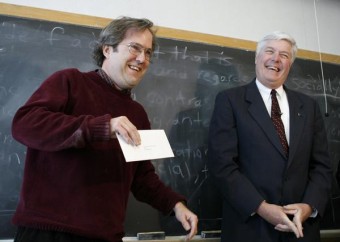
"It’s important to have mentors and role models from whom you can learn best practices."
- Jennifer Rowe, School of Journalism, 2009
"Develop a passion for teaching large introductory courses and not just small courses in your research specialties. Many of the important turning points in a student’s college career, such as choosing a field to major in, happen relatively early."
- Wayne Brekhus, Department of Sociology, 2008
"Don’t try to squeeze in too much material. Leave enough time for reflection and discussion in every class period."
- Anand Chandrasekhar, Division of Biological Sciences, 2008
"Teaching is a very rewarding aspect of your job as a faculty member. If you can open new doors for just one student, it is worth more than all the negative feedback you might receive."
- Tony Lupo, School of Natural Resources, 2008
"Don’t assume." - Lynda Kraxberger
"Don’t assume that the way you learned something is the way that your students will learn or experience something. Don’t assume that you know what’s best for all students. Discover the methods that work best for you and your students."
- Lynda Kraxberger, School of Journalism, 2007
"Be/teach yourself. Recognize that others are themselves."
- Frank Schmidt, Division of Biochemistry, 2007
"The rewards will be intrinsic, and they will come after a long time."
- Lois Huneycutt, Department of History, 2007
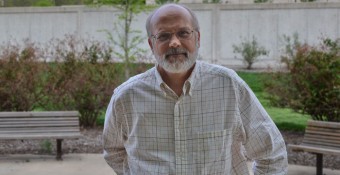
"If students can see that you take your role as instructor seriously and you have demonstrated to them that you care about their success — not only in the class but in their overall Mizzou experience — they will forgive a lot of small, and even large, imperfections in your teaching style (and personality!)."
- Tom Phillips, Division of Biological Sciences, 2006
"I want to move each student further along from their starting point. For me that means having course content, exercises and assessments that vary in the assumptions about what students know and can accomplish."
- Joan Hermsen, Department of Women's & Gender Studies, 2006
"If they see that you are excited about the material and really want them to be too, it can be infectious."
- Charlotte Phillips, Division of Biochemistry, 2006
"Be able to explain complex fundamental concepts to them in a way that they can relate to."
- Hani Salim, College of Engineering, 2005
"Let them know you care by your actions (and your words). When you treat your students with respect, they are much more likely to reciprocate."
- Richard Meadows, College of Veterinary Medicine, 2005
"Your findings should be integrated, if possible, into the lectures, and you should place special emphasis on issues of evidence and methodology. Ideally, teaching should introduce students to the challenges working scholars face and how they can be resolved."
- John Bullion, Department of History, 2005
"It's much more important, in the 21st century, to teach students how to think, not what to think." - Suzanne Burgoyne
"Students need to enhance their higher-order thinking skills, including creative thinking and metacognition."
- Suzanne Burgoyne, Department of Theatre, 2004
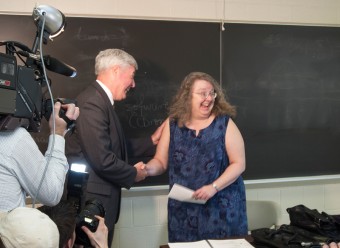
"Know your students’ names — even if you have 400 of them. I have found this single thing goes a long way in conveying to them that you care about their learning."
- Robin Hurst-March, Division of Biological Sciences, 2004
"There is a well-know saying: 'If it ain’t broke, don’t fix it.' My advice: 'Break it anyway. Fix it anyway.' Never be content with the state of a course or with the state of your teaching. Try new stuff. Resist complacency. Don’t get comfortable."
- Neil Minturn, School of Music, 2004
"Be the kind of instructor you would have wanted to have when you were a student."
- Larry Ries, Department of Statistics, 2004
"I was exceptionally lucky to have mostly small seminar classes, where I taught mostly upper-class and graduate students about writing. Every year, their favorite part of the class was the one-on-one conferences I scheduled to discuss their writing. I started with two conferences every semester, then expanded to three, then four. They still wrote on their evaluations that they wanted more one-on-one conversations. Clearly, they learned the most one-on-one."
- Mary Kay Blakely, School of Journalism, 2004
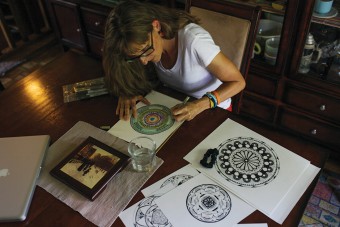
"Showing students that you care about them and what you are teaching makes a world of difference to them."
- Deborah Huelsbergen, Department of Art, 2003
"Keep your primary focus on the students or audience. Too many new teachers focus so much on the material or the technology that they forget the most important part of the process: learners."
- Jan L. Dauve, Department of Agricultural and Applied Economics, 2003
"Be a novice."- Pat Okker
"Find some activity or field outside your area of expertise that you enjoy, and develop your skills in this area. It will remind you what it's like to be a student."
- Pat Okker, Department of English (now senior associate provost), 2003
"Recommended readings: Jacques Barzun's Teacher in America, anything by Simon Leys and Jessica Mitford."
- Lawrence Okamura, Department of History, 2003

"Stay focused, work hard, and have confidence in yourself, and, most importantly, enjoy teaching/mentoring your fabulous students."
- Cyndi Frisby, School of Journalism, 2002
"Seek out the opportunity to teach things you don’t know well. Learn from teaching, especially from your students’ questions."
- Loukas Grafakos, Department of Mathematics, 2002
"Set students up for success. Provide assignments that can make a difference in their lives or in the community or help them think about topics in new ways."
- Laurel Wilson, Textile and Apparel Management, 2002
"Be enthusiastic. If you can get them excited about a topic, their learning will follow."
- Carol Ward, School of Medicine, 2001
"They don’t care what you know until they know that you care." - Jim Spain
"Students need to understand that their learning and understanding the material as your students is important to you. You need to create a learning environment that makes students excited to attend class. They are curious to learn the next thing, to better understand a concept or theory; they are excited about learning and enjoy being curious."
- Jim Spain, Vice Provost for Undergraduate Studies, 2001
"Maintain high academic standards! You will never be respected by students if you don't challenge them."
- Brian Frappier, Division of Biomedical Sciences, 2001
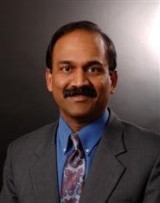
"It is important to understand your students well so that your efforts can be focused and successful. Spend time getting to know them, their backgrounds, commonalities, differences, strengths, weaknesses, etc., so that you are more attuned to your audience and their needs."
- Vairam Arunachalam, Trulaske College of Business, 1999
"Make human contact with your students by asking frequent questions about how the learning process is going."
- Michael A. Diamond, Harry S Truman School of Public Affairs, 1999
"It is your job as an educator to not just educate but impart wisdom and commitment to promoting social justice around the world."
- Puncky Heppner, College of Education, 1999
"The students are the reason that we are all here at Mizzou."
- Michelle Arnopol Cecil, School of Law, 1998
"One of your students could end up as the governor of Missouri; or the next CEO of a major company that aids all of society; or the winner of the Nobel Peace Prize. You don’t know what their future holds." - Mike Porter
"Your students could be your next-door neighbors, or they could be the children of your friends. You must approach them with a positive attitude."
- Mike Porter, Department of Communication, 1997
"Teaching is not only a science; it is an art. I believe that art is made from the materials of our own lives, not because those materials are the most expedient but because these are the things to which a person gives meaning. The artistry of teaching provides the process and materials for effective student-teacher dialogues and interactions, which are indispensable in the search for personal meaning."
- Larry Kantner, Department of Art, 1997
"I am a great believer in Carl R. Rogers' wisdom. He noted that 'the only learning which significantly influences behavior is self-discovered, self-appropriated learning.' So, we can provide our students with the opportunities, environment and encouragement. But the learning belongs ultimately to the learner."
- Benyamin Schwarz, Architectural Studies, 1997
"Figure out ways for your students to become practitioners of the discipline you are teaching and not passive observers of the subject material."
- Michael F. Smith, Division of Animal Science, 1995
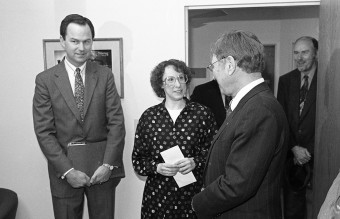
"Be sure that your actions and words in the classroom convey to your students that you care about them, respect them, and that their learning is important to you."
- Wendy Sims, School of Music, 1993
"Be enthusiastic about teaching. Want to be there! Excitement about your subject is contagious!"
- Dale G. Blevins, Division of Plant Sciences, 1993
"The instructor must be aware of what the students bring into the class and must monitor their learning."
- John E. Adams, Department of Chemistry, 1993
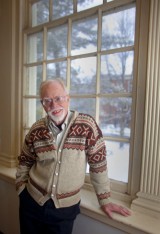
"When I received my Kemper, many of the graduate students who responded with letters of recommendation commented that the assignment to develop an eight-week program to solve a problem and then to run the program was one of their greatest learning experiences in their graduate program."
- Wayne Anderson, Department of Psychology, 1991
"When lecturing, use anecdotes and jokes to humanize the material you're presenting. Be honest at all times, and be as accessible as you can."
- Ezio Moscatelli, Division of Biochemistry, 1991
"Keep it relevant! Students learn and retain more when they understand the significance of new material."
- Mark R. Ryan, School of Natural Resources, 1991
"Be infectiously enthusiastic about your subject matter."
- Ed Kaiser, Department of Chemistry, 1991



